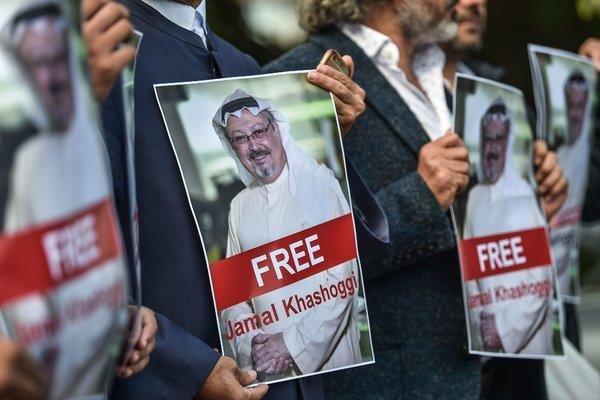TEHRAN- Jamal Khashoggi was killed by a Saudi hit squad operating under the command of Saudi Crown Prince Mohammed bin Salman (MBS), United States intelligence agencies have concluded.
An unclassified U.S. intelligence report released on Friday confirms for the first time what role top U.S. intelligence officials believe Saudi Arabia’s de facto ruler played in the 2018 killing of the Saudi journalist.
Former U.S. President Donald Trump’s administration held back the long-awaited report despite a 2019 law passed by Congress requiring its release.
Khashoggi, a columnist for the Washington Post who had been critical of the Saudi government, was dismembered inside the Saudi consulate in Istanbul in October 2018.
Saudi officials have denied MBS had any role in the assassination.
A test for U.S.-Saudi relations
The long-delayed intelligence report by the United States into the gruesome killing of Khashoggi did not contain any major revelations, but did agree with the widespread assessment that the murder was ordered by bin Salman, the 35-year-old crown prince.
The release of the intelligence report will serve as the first big test of the Biden administration’s promise to recalibrate relations with Riyadh.
The Biden administration’s promised reset of relations with the Persian Gulf kingdom — whose leaders nurtured close ties with Donald Trump — could be complicated by the degree to which the unclassified version of the report implicates the crown prince in the Khashoggi murder.
UN officials had previously concluded that there was “credible evidence” that the kingdom’s de facto leader was responsible for the killing at the Saudi consulate in Istanbul, and several U.S. lawmakers have said there is “zero doubt” the crown prince was involved. Prince Mohammed has taken “full responsibility” for the murder but has denied ordering the killing, which he has described as a “heinous crime”.
According to Financial Times, while Biden has pledged to make Saudi Arabia a “pariah” and put human rights at the forefront of his foreign policy, some senior aides have also warned against imposing sanctions personally on Prince Mohammed over his link to the killing. They have argued doing so would rupture a relationship the U.S. still sees as crucial to its regional priorities, including ending the war in Yemen and re-engaging with Iran.
White House press secretary Jen Psaki told reporters earlier on Thursday that “a range of actions that are on the table”.
Two people in touch with administration officials said Washington’s response could include a combination of actions from both the Treasury and state departments, including sanctions and visa restrictions on other individuals named in the report.
How exactly the U.S. will respond is “the $64,000 question”, said Gerald Feierstein, a former senior State Department official during the Obama administration who worked on West Asia.
Bruce Riedel, a former CIA officer specialized in Saudi Arabia, said he sensed “considerable division” within the Biden administration over the response it should take.
“Assuming [the report] states clearly that MBS is a murderer then how do you not sanction him?” said Riedel.
Chris Murphy, Democratic senator from Connecticut, told news channel MSNBC that he wanted “a much broader set of accountability measures” for anyone involved in the murder, identifying financial sanctions and visa withdrawals. He is among a number of members of Congress who have called for the U.S. to take tougher action against the kingdom.
There was “no way” Khashoggi’s murder was carried out without either the knowledge or direction of Prince Mohammed, who also serves as the kingdom’s defense minister, Murphy said.
The White House has already said Biden will not speak directly to Prince Mohammed, whose direct counterpart is U.S. defense secretary Lloyd Austin, but is keen to preserve the countries’ relationship. According to a White House readout of his conversation with King Salman, Biden said he wanted to “make the bilateral relationship as strong and transparent as possible”.
If the Biden team judges that targeting Prince Mohammed could backfire, it could instead “try to snub him or limit his role in the bilateral relationship”, said Yasmine Farouk at the Carnegie Endowment for International Peace.
Tamara Wittes, a senior fellow expert at the Brookings Institution, suggested the U.S. could expel Saudi diplomats because the killing took place in the Saudi consulate in Istanbul, in violation of the Vienna Convention. But she added that Riyadh could still avoid the toughest sanctions by taking more responsibility for the crime.
“I don’t think realistically it’s a question of blacklisting the crown prince of Saudi Arabia,” she said. “The ball is in the Saudi court to take full responsibility.”


No comments:
Post a Comment